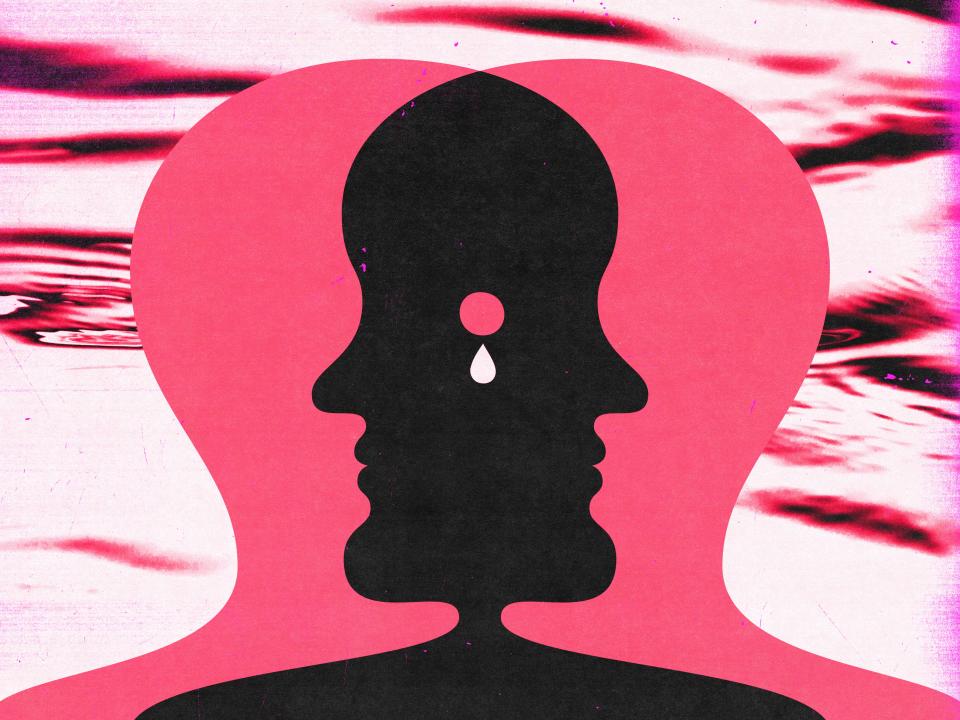The Reason You Can't Turn Off the Stress and Exhaustion of Work on Your Vacation Days

Michael Houtz; Getty Images
Want to build a better brain? In this series, we're exploring expert-led tips and POVs on the latest research on improving cognition and brain health in different sectors of life.
You know the drill: Your job has been all-consuming, occupying your headspace even when you’re not on the clock. For weeks, you’ve been looking forward to your upcoming vacation time. Once it arrives, though, you realize you feel absolutely spent—perhaps even more so than on days when you’re moving through your workday grind. How is it be possible that you feel more exhausted on your day off?
The short answer is that your brain doesn’t function like a light switch. “It's not like you can just go from stress to relax,” says clinical psychotherapist Lia Avellino LCSW. “We actually have to give our nervous system time to regulate.”
Whether you’ve been burning the candle at both ends or you’re simply in need of a break, immediately expecting to feel refreshed just because you put an OOO message on your work email simply isn’t realistic. There are several reasons that may help explain why.
You might be legitimately sleepy
Feeling tired and feeling sleepy aren’t the same thing, says Lauren Asarnow, PhD, a clinical psychologist who specializes in sleep. It’s an important distinction because each state requires a different intervention. If you’re tired, you might feel run down physically or like your mental load is weighing you down. Feeling sleepy, though, more so reflects being able to lie down, nap, and then feel replenished.
To gauge whether you might benefit from going to sleep, Dr. Asarnow suggests looking out for sleepiness cues, which are signs from your body that it’s ready to fall asleep. These might include physical markers like rubbing the eyes or yawning (which can also mean you’re bored), she says.
You’re burnt out
If you’ve been overworking or are burnt out, the notion that a day off will restore you is unfortunately just not realistic. “Taking a day off as a break when you're experiencing burnout is such a drop in the bucket,” says neuropsychologist Karen Dahlman, PhD. “It's not the answer because then you go right back into the fire—[a day off] doesn't give you the respite, and you're not fixing the fire itself.” For another analogy, Avellino offers that when you take a day off amid burnout, “the suture doesn't match the wound.”
Unfortunately, there’s no magic number for how many days it takes to heal and relax from a situation of burnout or overworking, but listening to your body can help you gauge your personal progress for yourself. First, understand and embrace that there’s no quick fix. Avellino reiterates that your brain and body need time to regulate, but caveats that “regulate” and “calm” are not the same. “We want to go from a hyper-aroused state and then feel chill,” she says. “Regulation is not feeling calm all the time. It's feeling able to tolerate difficult emotions en route to calm.”
You haven’t work through all your feelings—even the tough ones
You may well want to feel like a Corona commercial incarnate the minute your time off work starts. But, given that you require time to regulate, you might want to let go of any presumption that you’ll “find your beach” immediately.
When you come out of a state of hyperarousal, which can happen when you’re on the hamster wheel of working, you may not know what to do with yourself. It’s at this point—once we stop—that Avellino says we can experience and process the full slate of feelings we consciously or subconsciously have long held. “When we stop working, it's not that we are more tired, it's that we feel how tired we have been,” she says. “Work is like a lid on the can. It opens when there's space and time to come down, revealing what's already there.”
Upon accessing this space and time—which might be your vacation—in order to work toward feeling rested and rejuvenated, you first need to go through feelings like anxiety or frustration, which you might avoid because they’re coded as negative.
He starts his day with a “powerhouse bowl of brain-boosting nutrients" that promote cognitive function, mood stability, and overall brain health.” Now, you can, too.
Experts say that while associative research strongly suggests that strategy games can help with “cognitive reserve," there's still more to glean about how chess improves memory.
You’re not imagining the ups and downs. Here’s the science at play.
4 tips to help you actually relax
1. Decipher whether you need to sleep more
Pay attention to those sleepiness cues from Dr. Asarnow. If you’re not sure whether you’re sleepy, try and take a nap. When you wake up, maybe you’ll feel more rejuvenated, which would be a win. If not, work on addressing your tiredness or fatigue.
2. Practice mental flexibility
Mental flexibility, or cognitive flexibility, is the ability to toggle between different states of mind. According to Dr. Dahlman, being able to practice mental flexibility can help you find more balance in your regular routine.
Doing so can, in turn, translate to more relaxing time off, Avellino says: “In order for things to work, they need to be practiced over time. I think about it more as what are your maintenance tools? What makes you feel seen, soothed, and secure? What helps you feel nourished, and how are you integrating those things in your everyday life—not just on the vacation?”
As for what your mental flexibility routine or practice actually looks like, the sky’s the limit. And it doesn’t have to be huge or time-consuming. Dr. Dahlman suggests doing any exercise that can help you put a pin in whatever anxieties from work might be taking up mental real estate and then intentionally shift your attention. “Whatever transition ritual it is,” she says, “whether it's deep breaths or shaking your whole body, let it be private to you, and let it be the start of your evening or the weekend.” Or your vacation time.
3. Compartmentalize, don’t avoid
Practicing mental flexibility asks you to switch gears to help ensure work stressors don’t seep into your time off—but it is not the same thing as avoidance. “Compartmentalization is an essential and healthy coping mechanism…it’s like putting a Post-It on something [so you can return to it later]” says Avellino. “Avoidance is never going back to that thing.”
Compartmentalization can be a helpful tool for being able to earnestly enjoy your time away and feel rested when you return to your regularly scheduled programming.
4. Give yourself a break
If you’re feeling exhausted during time off work, getting frustrated about it won’t magically energize you. Your best bet, according to Avellino, is “approaching the body and mind with curiosity rather than judgment.” So, pay attention to what’s going on—is your mind racing? Is your heart pumping? Are your palms sweaty? Pinpointing what is happening might pique your curiosity, lead to some answers, and help you legitimately relax.
Originally Appeared on GQ




